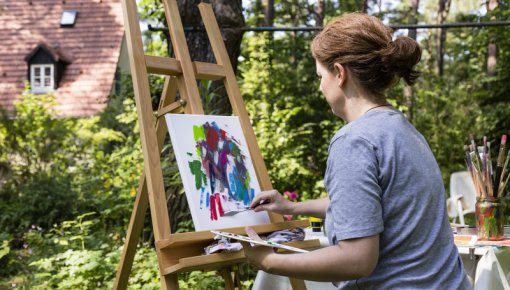Pain in my whole body
Over time, I had more and more problems with my knees, and I had one operation after the other. But they didn’t help at all. I had a good orthopedic doctor. He didn’t lose his patience with me, even though nothing helped. On the contrary: The pain got worse and worse, and spread throughout my whole body.
The pain feels like muscle ache in my whole body. Every movement hurts. Some parts of my body hurt so much that I can't bear it if anyone touches them. But you can’t see anything from the outside.
My orthopedic doctor examined me over and over because he didn’t know what was causing the pain. When it kept getting worse, he had me admitted to a rheumatology ward.

